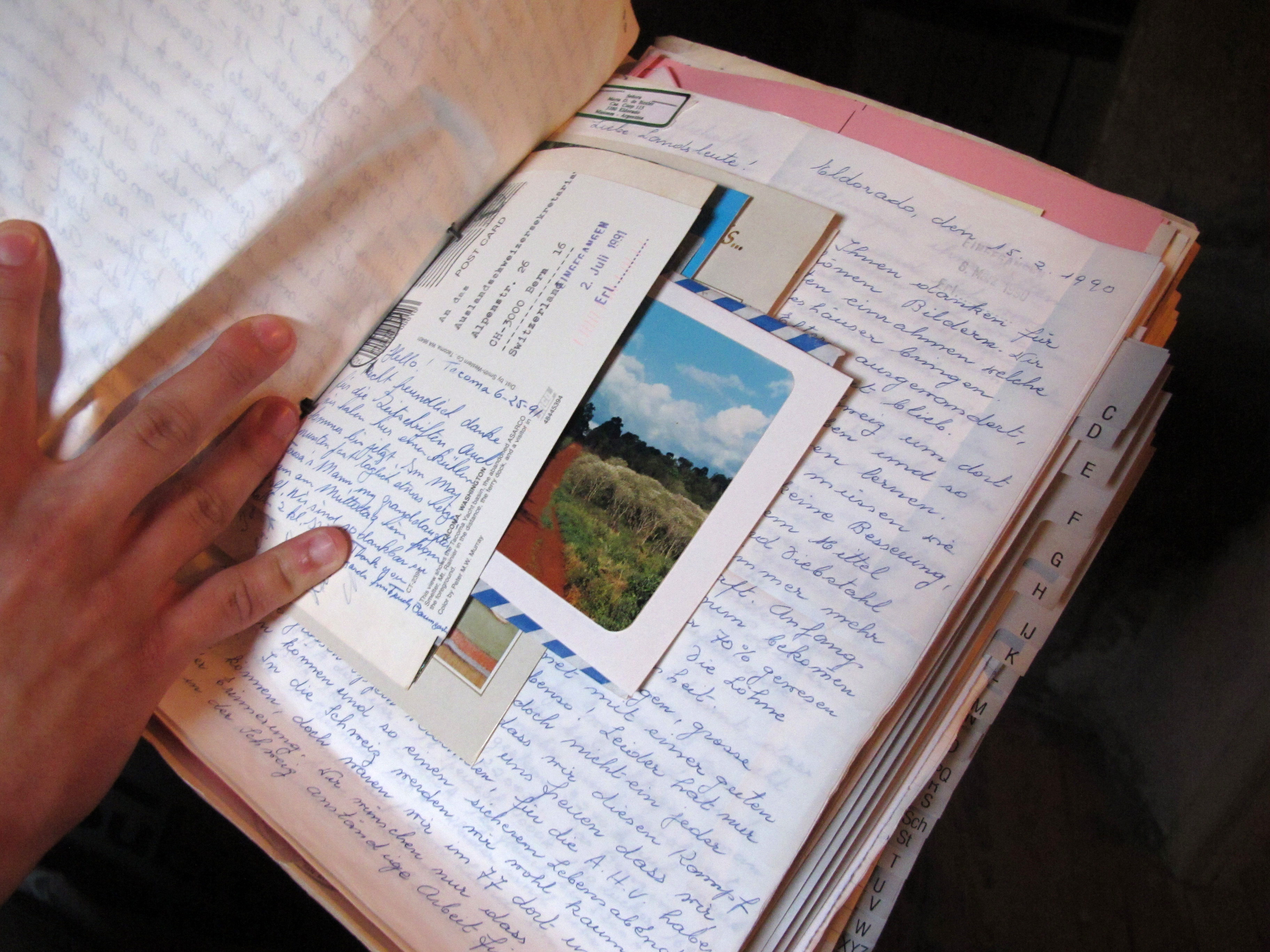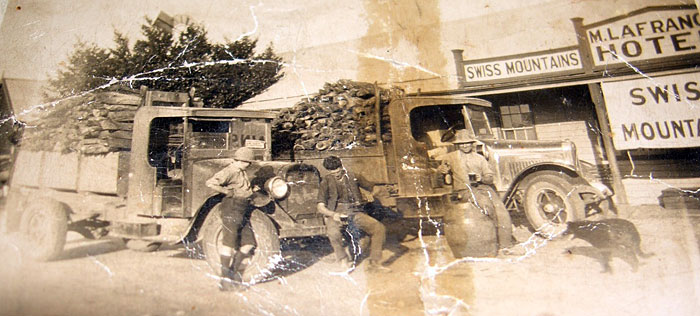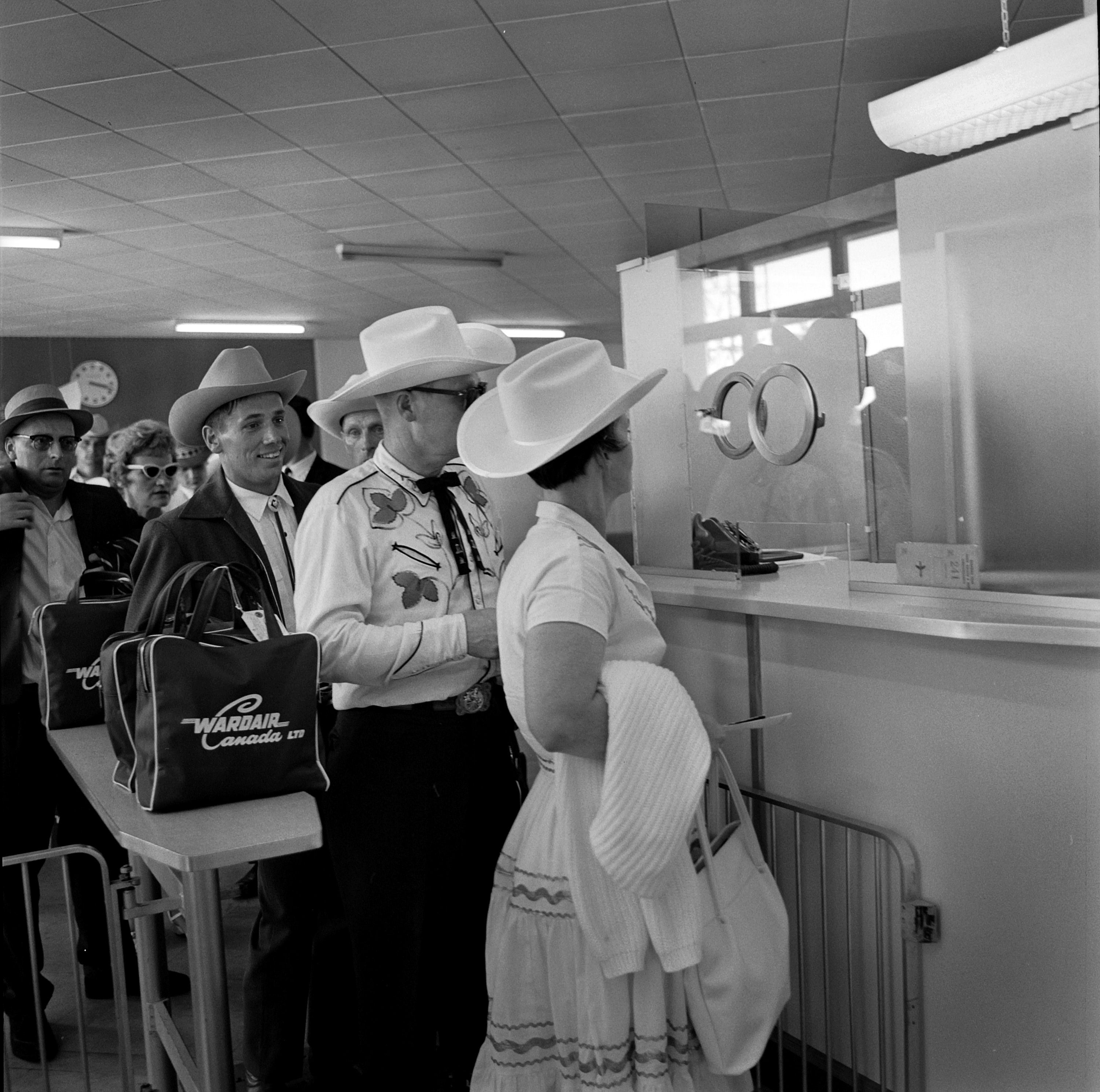Archivist serves up expat history on a platter

Dating back nearly 100 years, the records of the Organisation for the Swiss Abroad (OSA) - documenting its activities and the experiences of the Swiss expatriate community - are being dusted off for inclusion in the Federal Archives.
Stored in the attic of the OSA headquarters in Bern, historian Florian Baccaunaud is examining the final bunch of records, dating from the period between 1994 and 2000, so that 100 years of documents may be ready in their entirety in time for the organisation’s centenary in 2016.
Baccaunaud, a dual Swiss/French national with a BA from Bordeaux University, has been given three months to go through the hundreds of documents stored under the roof of the OSA building. He decides which papers to keep for posterity, and how to file them according to their contents in a digitalised register and has until the beginning of September to wrap up his work.
“The forthcoming centenary encouraged us to push ahead in order to ease access to documents for researchers so that a history of the OSA could be written by 2016,” OSA director Rudolf Wyder says.
Hand-written
The OSA records cover a wide range of activities by the organisation, the Council of the Swiss Abroad and the annual congresses.
They include the minutes of the meetings, speeches, official programmes, lists of participants and even hand-written “log books” of young expatriates attending the official holiday camps in Switzerland.
Not least, there are also newspaper clippings, pictures and, of course, the official correspondence of the OSA.
“From the point of view of a historian, all these documents are most interesting. They are a record of the OSA activities for the Swiss Abroad. Also they allow us to understand how it all happened, how the institutions work and what role this organisation has played,” says Baccaunaud.
Many letters, particularly official correspondence, Baccaunaud adds, can help the Swiss authorities identify necessary legal and administrative amendments or lead to new bilateral accords between Switzerland and a country, where expatriates may face certain problems.
“Through the history of the OSA we can not only get an idea of the concerns and interests of the expatriate community, but also of those people who wanted to emigrate or return to Switzerland,” Baccaunaud says.
Diverse experiences
Among the records Baccaunaud looked at were many letters by expatriates to the OSA, covering social, legal, economic, political or patriotic topics.
Baccaunaud says the documents are evidence that the concerns of the Swiss abroad went beyond their own personal environment. Many members write of wanting to take part in Swiss life and offering their services for the country.
“The letters are also very simple testimonies of expatriates who write about their recent emigration. They have only just settled in their new host country and explain how they are perceived as Swiss abroad,” he notes.
Baccaunaud shows an example written by a Swiss women who had just emigrated to a French village on the border with Spain. In it she recounts an anecdote of a visit to the local hairdresser’s which seems to have touched a raw nerve.
Asked where she came from, the lady responded she was from Geneva – whose citizens have a reputation of taking their city and themselves very seriously – but there was no reaction. Upon repeating her answer, the hairdresser nodded affirmatively: “Ah, yes, Grenoble.”
The Organisation of the Swiss Abroad (OSA) was founded in 1916 to provide a link for the expatriate community across the globe with their country of origin.
Founded by the conservative New Helvetic Society in 1916, the mission of the organisation was to boost the national spirit among the diaspora and strengthen Swiss expatriates’ links with their homeland.
A precursor of the Council of the Swiss Abroad first met in 1917, while the first Congress took place in Basel in 1918.
The organisation was headquartered in Geneva and Fribourg before it moved to the capital, Bern in 1928.
The Bern-based organisation promotes the interests of the Swiss abroad and is considered the official mouthpiece of the expat diaspora.
OSA also offers advisory services to the 700,000-strong community and represents about 750 Swiss clubs and institutions across the world.
The Council of the Swiss Abroad is the governing body. Twice a year, its 140 members gather for formal meetings.
(Adapted from Italian by Urs Geiser)

In compliance with the JTI standards
More: SWI swissinfo.ch certified by the Journalism Trust Initiative



You can find an overview of ongoing debates with our journalists here. Please join us!
If you want to start a conversation about a topic raised in this article or want to report factual errors, email us at english@swissinfo.ch.